| "The situation in Mariupol is both dire militarily and heartbreaking. The city doesn't exist anymore." - Ukrainian Foreign Minister Dmytro Kuleba provides an update on the key port city under Russian siege. Welcome to the "Face the Nation" Five at Five newsletter. Scroll down for your five takeaways from today's broadcast of "Face the Nation with Margaret Brennan" on CBS. Did someone forward you this? Sign-up at cbsnews.com/email. 1. Kuleba: Russian forces have decided to raze Mariupol "at any cost" 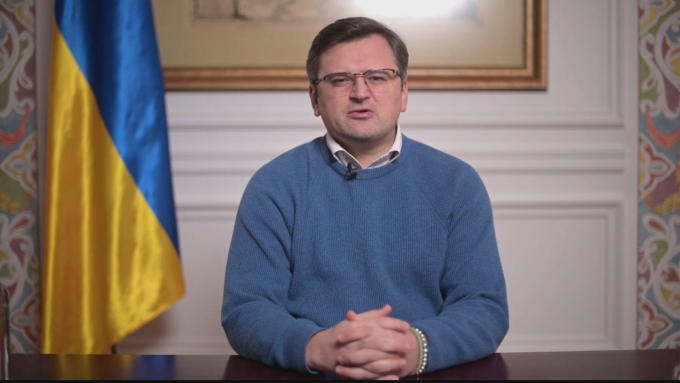 Ukrainian Foreign Minister Dmytro Kuleba said Sunday that the port city of Mariupol "doesn't exist anymore" after coming under siege by Russian forces for an unrelenting seven weeks. What we asked: "Mariupol's governor says the city has been wiped off the face of the earth. How long can Ukrainian forces resist Russian control of that city?" What Kuleba said: "The situation in Mariupol is both dire militarily and heartbreaking. The city doesn't exist anymore. The remainings of the Ukrainian army and large group of civilians are basically encircled by the Russian forces. They continue their struggle, but it seems from the way the Russian army behaves in Mariupol, they decided to raze the city to the ground at any cost." Why it matters: If the key Ukrainian port city falls, Russian forces would have a land corridor to the Crimean peninsula. The Russian military estimated roughly 2,500 Ukrainian fighters are still at Mariupol's Azovstal steel plant, providing a remaining pocket of resistance. 2. Hodges: Russian forces may feel "immense" pressure to take Mariupol 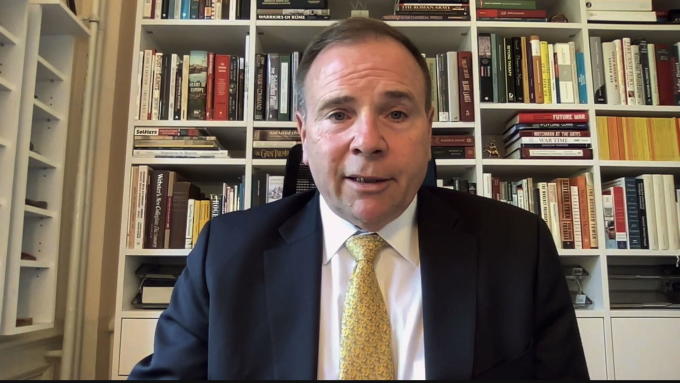 Retired Lt. General Ben Hodges, a former commander of the U.S. Army in Europe, analyzed Russia's current movements in Ukraine and provided context on why the next month will be critical. What we asked: "Many expect President Putin will intensify this assault leading up to May 9, which is a key holiday. What do you expect to see?" What the Hodges said: "I do think that the pressure on the general staff to deliver Mariupol finally ahead of 9 May is immense. 9 May, of course, is the annual celebration in Russia of the end of World War II, or what they call the Great Patriotic War. It's a huge parade in Red Square every year. So obviously they need to have something to parade to show as a victory on 9 May. So I think this date does- does have importance there." Why it matters: As Victory Day approaches, Russian military leadership may become increasingly desperate to finally take the city. 3. Beasley: Russia is using hunger as a "weapon of war" 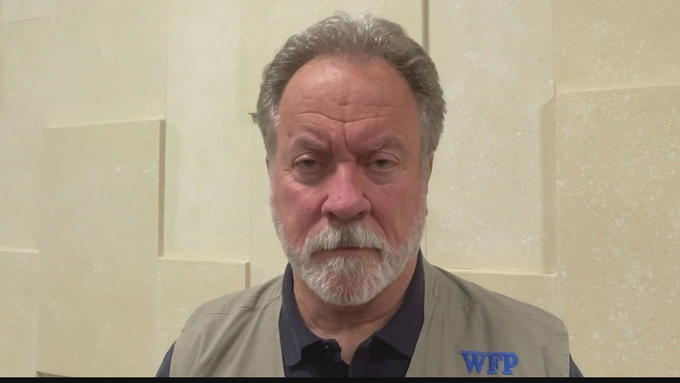 David Beasley, head of the U.N. World Food Programme, joined "Face the Nation" to discuss the difficulties in supplying food to Ukraine and how the war is affecting the global food market as a whole. What we asked: "Given the lack of access to Mariupol, do you believe Vladimir Putin is using starvation as a weapon? " What Beasley said: "Well, what I've been seeing already, that we've seen food depots that have been blown away, I've seen places where there's nothing in these warehouses but food, and that's not even in Mariupol. And so there is no question food is being used as a weapon of war in many different ways here. And I don't know the reason or rationale for it." Why it matters: In addition to Ukrainians themselves being cut off from food access, the country is also a major food supplier for the rest of the world. The continued fighting threatens that global supply.
4. Coons: Global COVID relief funding "critical" to national security 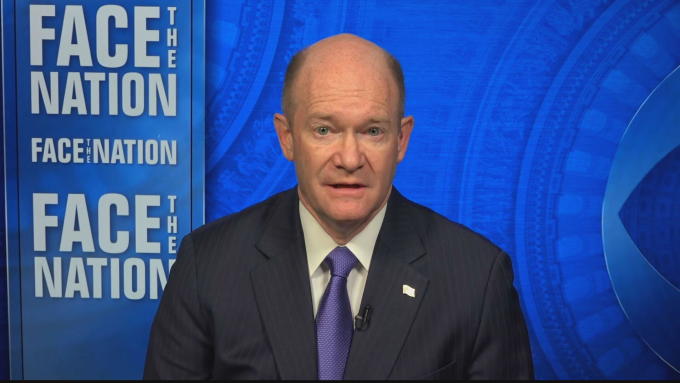 As Congress remains in a standstill over providing supplemental pandemic relief, Democratic Sen. Chris Coons of Delaware said Sunday that additional funding to help combat the COVID-19 pandemic worldwide is "critical" to U.S. national security. What we asked: "There are some Republicans saying there should be no spending except for on defense. Are you saying this is how it should be characterized?" What Coons said: "I think this is critical to our national security. Look, we've already lost a million Americans. This weekend, as families gather to celebrate Easter Sunday or to celebrate Passover or during the holy month of Ramadan, we have folks from all three major global faiths, from Islam, from Judaism, from Christianity, that jointly have their roots in the Middle East millennia ago. All of these great faiths have a common principle to do unto others as you would have them do unto you and to care for those in need around the world. I think we can and should justify this additional spending as critical for our national security or as teaching our values, showing to each other the best in the human spirit and the most central tenets of the faith that inspires so many Americans." Why it matters: Senate negotiators reached an agreement to provide $10 billion to help the U.S. continue its fight against COVID-19, which omitted global pandemic aid. But earlier this month, Senate Republicans blocked the measure from moving forward after Democratic leaders declined to allow votes on an immigration-related amendment. 5. Sister Pimentel: "I definitely encourage" Biden to visit southern border 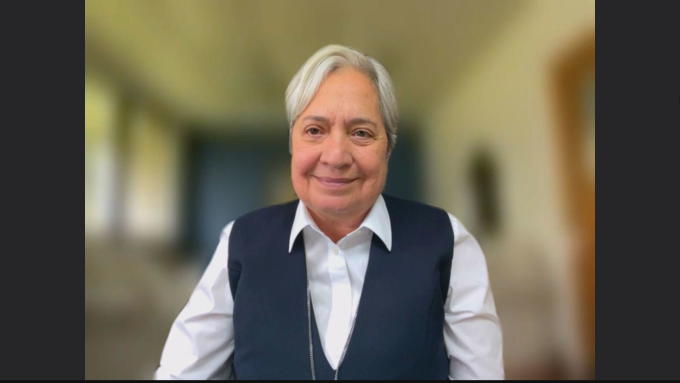 Sister Norma Pimentel, executive director of the Catholic Charities of the Rio Grande Valley, told "Face the Nation" on Sunday about what she has witnessed along the U.S.-Mexico border and once again encouraged President Biden to come to the border himself to see what is going on. What we asked: "Well, you wrote in an op-ed last year you made an appeal for President Biden to come down personally to see some of what you are describing. He hasn't been there yet. What impact do you think a personal experience would have?" What Pimentel said: "I definitely believe that somebody, everybody, should come to the border so that they can have an opportunity to see our community and the people we serve. If they can get a- a seat for themselves and meet families, I think that- that impacts somebody's way of looking at what is happening. And so I definitely encourage President Biden to come and see and to be able to understand more closely what a family that is suffering at the border, how he must decide how- how to proceed." Why it matters: Amid plans to drop the controversial Title 42 pandemic-era rule, the Biden administration is facing a surge of migrants at the U.S. southern border that reached levels not seen since 2000. | 
No comments:
Post a Comment